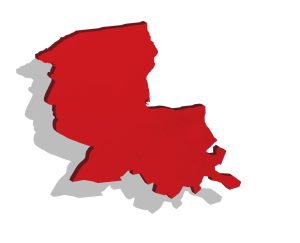National media fails Louisiana residents
August 24, 2016
This is an opinion article and does not necessarily reflect the views of The Tulane Hullabaloo.
The American Red Cross declared the August flooding in Louisiana the worst natural disaster in the United States since Superstorm Sandy devastated the East Coast in 2012.
Louisiana Governor John Bel Edwards declared a state of emergency, referring to the current catastrophe as “historic” and “unprecedented.” Despite the immense destruction, national news outlets neglected to devote appropriate attention to the story. The media has a responsibility to inform the public and, in this case, faltered on their due diligence.
News sources largely ignored the story of flooding and destruction. Visits from the Trump-Pence campaign and President Obama, however, did stir up some attention. It should not take political visits for the media to commit resources to covering a story of huge national importance.
The burden of providing necessary information fell to local and regional news media outlets such as The Advocate and The Times-Picayune. They dispersed critical information to locals as well as educated the rest of the nation on the condition of Louisiana. As is the case during many other perilous situations, social media proved a powerful communication tool, connecting residents and providing updates about the safety of roads and neighborhoods.
The New York Times, historically the gold standard of print journalism, did not run a story on the flood until the following Sunday, days after heavy rains began to flood the region. It did not deploy a journalist to Louisiana until Tuesday. Liz Spayd, an editor at The Times, called out her own paper for its failure. People also criticized CNN, known for its 24/7 coverage of crises for not airing a story until Sunday.
Susan Moeller, a professor of media and international affairs at the University of Maryland and director of The International Center for Media and the Public Agenda, said the lack of attention is due to bad timing. With the commotion surrounding the presidential election and the Olympic Games, the media is stretched thin trying to cover it all. Preoccupation does not excuse its failure.
The national media deserves the fierce backlash it received from locals who feel forgotten. Among the critiques from members of the media, longtime CBS Evening News anchor Dan Rather’s Facebook post, stands out.
“If these floods were happening in New York City, or Washington D.C. or even San Francisco, do you think the coverage would be different?” Rather said.
The minimal coverage has failed too in reporting on how and why this disaster occurred. Weather services did an inadequate job of alerting the public to the severity of the incoming storm. After weather organizations deemed it merely a low-pressure system instead of a tropical system, many residents let down their guard.
News reports ignored long-term issues, such as the subsidence of Louisiana soil, that contribute to these sorts of disasters. These downpours will become more frequent as climate change increases and add more moisture to the atmosphere. According to Kevin Trenberth, a senior researcher with the National Center for Atmospheric Research in Boulder, Colorado, for every degree Celsius temperature increase, the atmosphere can hold seven percent more moisture.
People should not undervalue the positive impact of media coverage. Not only does it inform locals and citizens across the country, it affects the availability of recovery funds.
Hurricane Katrina showed that relief efforts are directly correlated to national attention. With this storm, the amount of coverage was disproportionate to the amount of suffering.
Many national news media outlets are making an effort to correct their mistake by giving the story the proper coverage it deserves, but for the hundreds of thousands affected and those who care about them, they missed their deadline on this story.
Caroline is a freshman at Newcomb-Tulane College. She can be reached at [email protected].









Leave a Comment